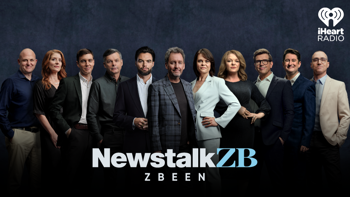Follow
the podcast on


On the face of it, the announcement from Transport Minister Chris Bishop yesterday makes good sense. It's been signalled; it was National Party election policy to move away from a fuel excise duty to road user charges (RUC). Simeon Brown, who was the transport spokesman at the time, said it would be a fairer way to charge for the distance people drive rather than the amount of fuel they use, given the different nature of the way we drive these days and the vehicles we drive.
So the current fuel excise duty is expected to be abolished in the coming years, all vehicles moving to road user charges. These are currently paid by owners of diesel, electric, and heavy vehicles. Last year the Government said the transition away from the so-called petrol tax could happen as soon as 2027. Yesterday, Chris Bishop said no date had been set, in order to make sure the changes aren't rushed. Which put this rather in the category of an announcement of an announcement.
What was announced yesterday is:
- Removing the requirement to carry or display RUC licences, allowing for digital records instead.
- Enable the use of a broader range of electronic RUC devices, including those already built into many modern vehicles.
- Supporting flexible payment models, such as post-pay and monthly billing.
- Separating NZ Transport Agency Waka Kotahi’s (NZTA) roles as both RUC regulator and retailer to foster fairer competition.
- Allowing bundling of other road charges such as tolls and time-of-use-based pricing into a single, easy payment. Currently, the system is mostly paper-based and drivers have to monitor their odometers to check what distance they have driven. It also requires owners to buy RUCs in 1000km chunks.
The Automobile Association is broadly supportive of the changes. AA Transport policy director Martin Glynn spoke to the Mike Hosking Breakfast and believes moving to an electronic system is a good idea.
MG: “I think absolutely long term, as vehicles become more fuel efficient and people start, you know, there's different ways of powering vehicles, as we all know it's just not sustainable. So yeah we actually do need to make the shift.
MH: "The electronics behind it, is the transfer easy? If you get an app or you get a sensor in your car or whatever that turns out to be, is that easy?
MG: "The announcements been a little bit vague. Certainly for new cars the Minister’s been clear that a lot of that data and the systems are already available in the car itself, so that should be fairly straightforward. But I think that what he seems to be signalling is that we're moving to electronic devices to measure distance, and base, and weight. So that would be actually something in vehicles like we have the heavy vehicles now.
And the National Road Carrier Association CEO Justin Tighe-Umbers spoke to Early Edition this morning, and they also think it's a good move.
“It’s a once in 50 year change. Every country around the world is actually facing this problem where you've got EVs and far more efficient petrol engines just reducing how roading’s paid for. New Zealand's actually in, we're in quite a good position because we're world pioneers in road user charges. We were the first to bring it out in the late 70s and we're still a world leader on it with electronic RUCs for how trucks pay for it, so we're actually in quite a strong position compared to other countries.”
Who knew? I did not realise that we were world leaders in road user charges. At first glance, it makes sense. The Minister said that as our vehicle fleet has changed, so too must the way we fund our roads. It isn't fair, Chris Bishop said, to have Kiwis who drive less and can't afford the fuel-efficient cars paying more than people who can afford one and drive more often. He said the intent is to make paying RUC user friendly and similar to paying a power bill online or a Netflix subscription.
The thing is though, if you don't pay your power bill or your Netflix subscription, the service is cut. You don't get it anymore. You don't pay, you don't get it. You can't do that with roads. It's not as though all of a sudden a barrier is going to appear at your driveway, and you're not allowed to go onto the road because you haven't paid your RUC. And according to number of mechanics, the number of vehicles that turn up where the RUC have not been paid is extraordinary. So the system will only be as good as the technology that can isolate the people who are not paying. I'm sure you'll be able to fiddle the electronics if you can fiddle odometers, and people have been doing that ever since there's been the buying and trading of vehicles. The technology has to be as tamper proof as we can make it. It's the right move, but we just have to ensure we have the technology to ensure that users do indeed pay.
Take your Radio, Podcasts and Music with you









